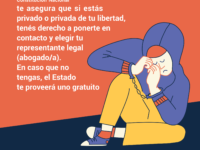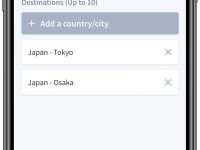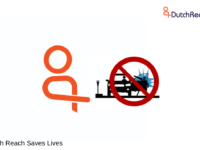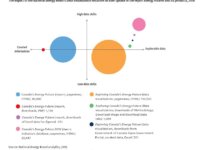"Defensores" is a platform designed to provide public defenders with a tool to register allegations of torture. This project was carried out in partnership with two key actors in the subject: The Ministry of Public Defense (MDP) and the National Mechanism for Prevention against Torture (MNP). Its implementation facilitates the effective and permanent monitoring of torture by public defenders and generates qualified information for different institutions and society in general. It's the first…
Innovation Tag: Open Source
We created the BizLab, Human Centred Design (HCD) Training Academy to develop skills public servants will need for the future and create a citizen-centred culture in the Australian Public Service.
This is not just another training course.
We not only train participants in HCD tools and techniques, but we make that learning stick with our unique Alumni support system
Digital Lithuania Academy is an online learning platform that aims to guide the country’s public sector through the digital transformation. It seeks to immerse public servants in digital practices relevant to their work, and upgrade their professional profiles through a highly personalized learning pathway. By becoming increasingly tech-savvy, public servants have the chance to vastly increase their efficiency, find innovative ways of working, and deliver better public services to citizens.
Parents Gateway is a one-stop, centrally coordinated app streamlining engagement between parents and schools, capable of direct mass communication of time-sensitive messages of high level of importance to all parents nationwide. With curriculum time saved, teachers previously burdened with onerous administrative work are free to focus on core teaching and to better meet students’ needs. Parents stressed by disparate admin processes for children in different schools can now manage all in one…
Dutch Reach Project (DRP) closes a serious gap in existing road safety efforts to prevent “dooring,” a common, feared & at times fatal crash caused when exiting motorists - using their near hand - suddenly throw open their car door into the path of a bicyclist or other vulnerable road user (VRU).
To prevent dooring, DRP promotes the Dutch Reach (DR): reaching across to the door with the far hand to open - a much safer method.
The DR project is already gaining increasing attention and being…
In most countries residents are entitled to a number of social benefits, but few people ultimately claim these benefits as they may be unaware of them, of who is eligible, how to apply for them etc. Israel was no different, until recently when Kol Zchut developed www.kolzchut.org.il, which holds over 6,000 information pages, serving more than 6 million unique users annually (>50% of Israelis), dramatically increasing public accessibility to information, and boosting claims to benefits.
In 2016 the NEB launched the Data Visualization Initiative to face the challenge of producing usable and useful data to go beyond using new technologies to deliver better service to citizens. It created multiple products from the same information to expand public participation in the energy dialogue and enable evidence-based decision-making. These products include interactive data visualizations and other materials, such as high school lesson plans, as a new way to engage experts and nonexperts.
Make.org est une plateforme européenne de mobilisation citoyenne autour d’actions de transformation de la société. Dans ce cadre, Make.org développe une solution digitale de consultation massive, totalement inédite, capable de faire participer autour d’une question simple d’intérêt général, plusieurs milliers de citoyens, dans plusieurs langues, et de restituer les résultats de cette consultation en ligne, de manière quasi instantanée. Cette solution est complétée des…
Open policy-making is an opportunity for government and stakeholders to move from linear, polarized, single-issue, interest-based considerations to interactions that are networked, collaborative, opportunity-based and where complexity is viewed as an asset. Adapted for the Government of Canada context, Pol.is is a cost-effective and highly scalable, digital engagement platform that can be used as part of broader strategies to put people and robust evidence at the heart of government decisions.
The frameworks for creating and managing the rule of government, as reflected in policies, legislation and regulation, are still based on a paper paradigm. In a digital world this creates poor service experiences and often the intent of a policy is not achieved. Instead if we co-design authoritative machine-consumable rules we can provide better services for citizens, better delivery of policy intent, and enable communities, NGOs and private sector to be part of a government service ecosystem.




